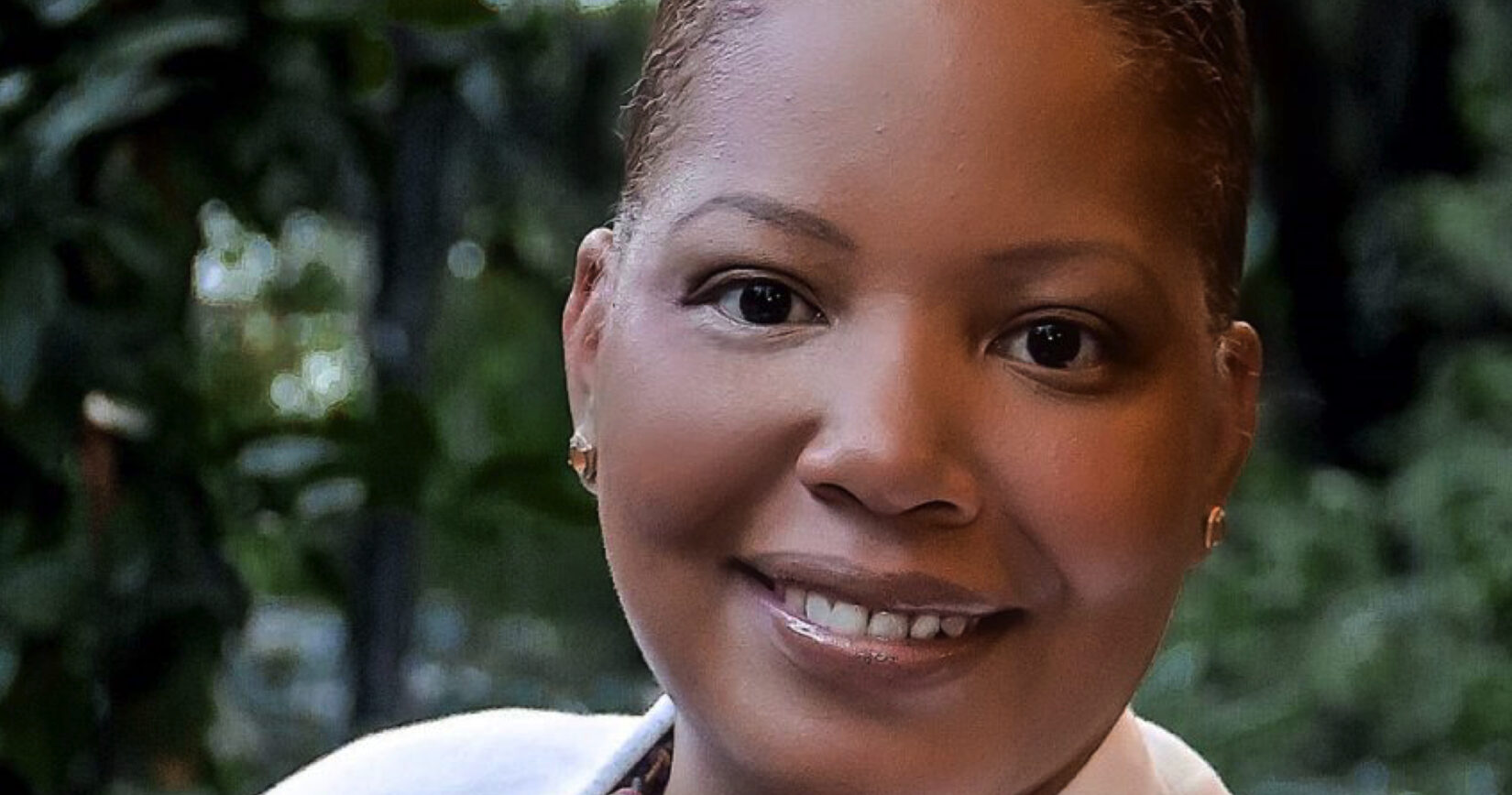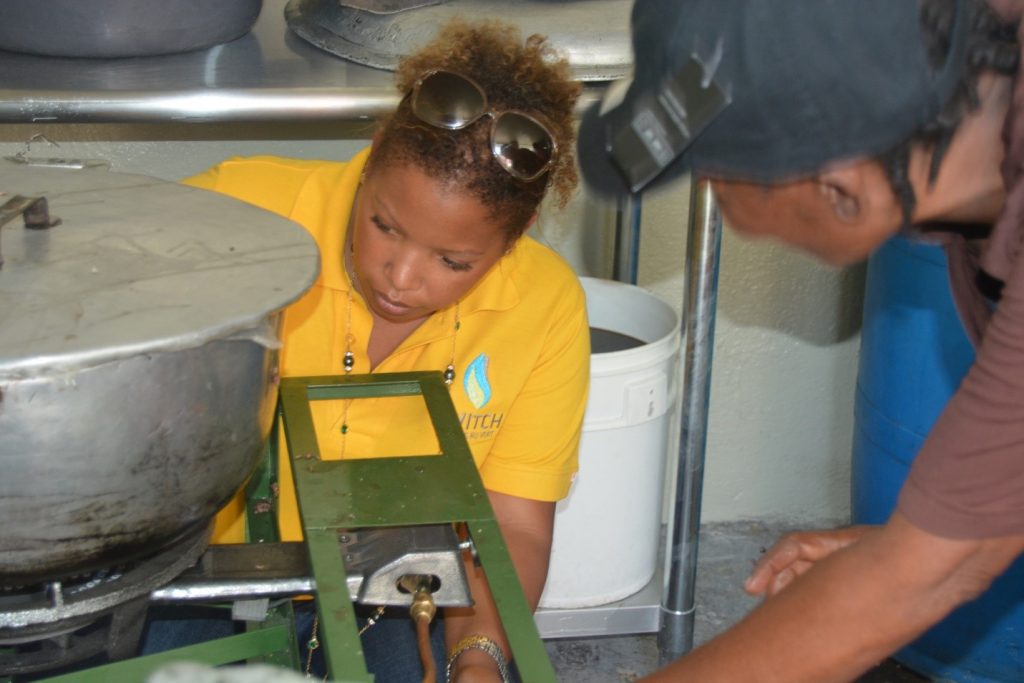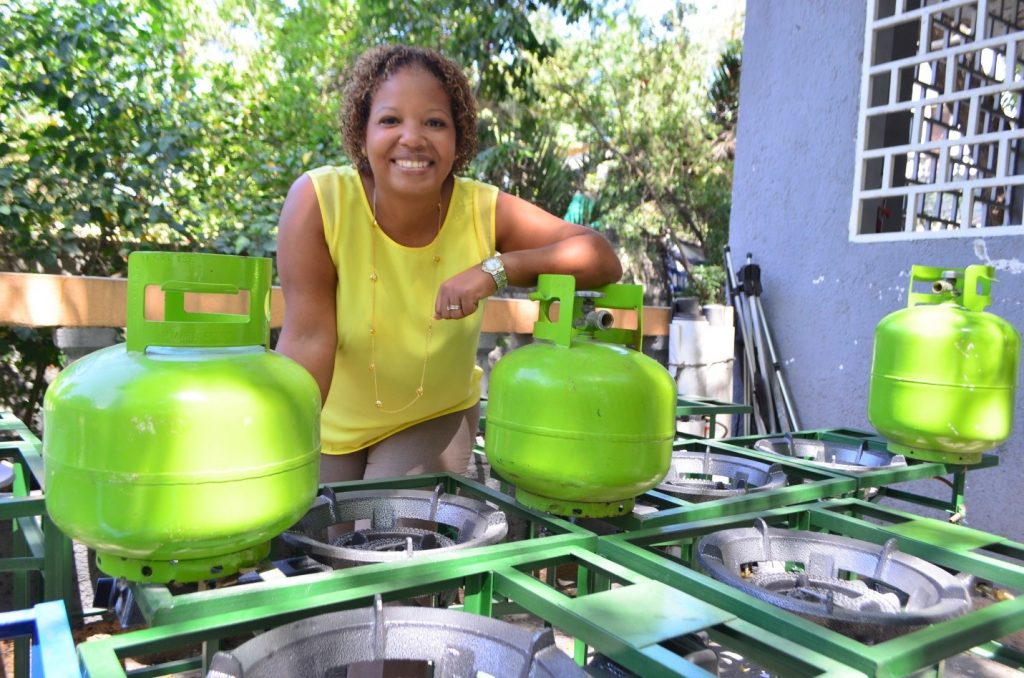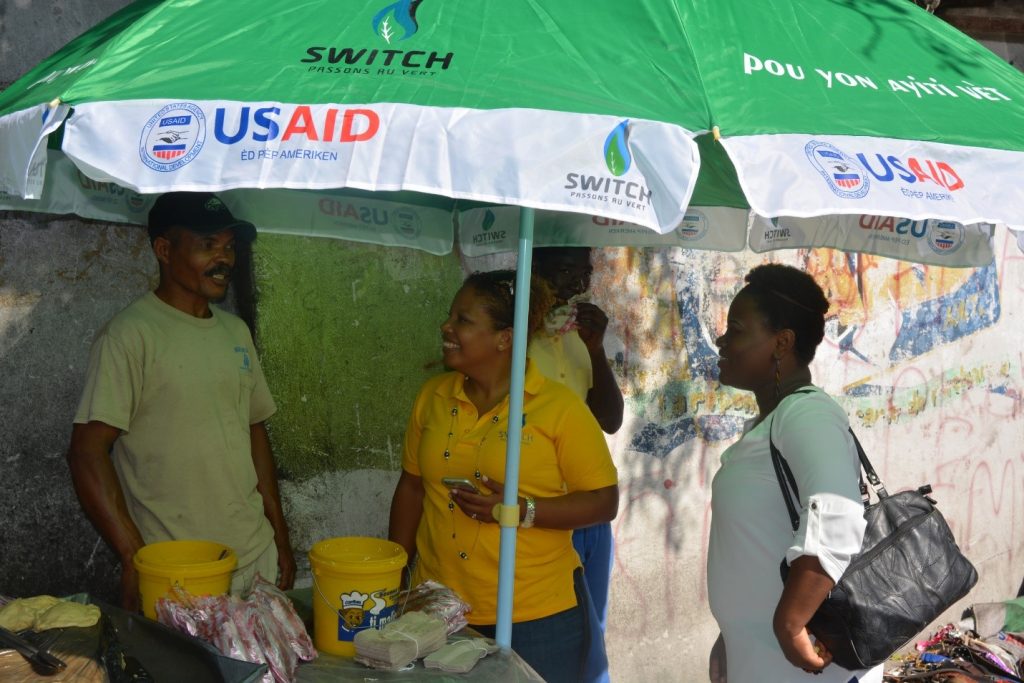
Kalinda Magloire is the CEO and founder of SWITCH, S.A., a Haitian enterprise that is a partner of the Clean Cooking Alliance. SWITCH produces clean cookstoves run on propane instead of charcoal. With a mission of improving livelihoods, protecting the environment, preserving health, creating jobs, and empowering women, SWITCH is changing lives for the better. Street vendors, schools, orphanages, and SWITCH workers have all benefited from the company’s drive to do good.
What does #EqualEverywhere mean to you?
Equal everywhere means gender equality in all parts of the world, regardless of socio-economic level and cultural background. It means that women and girls have full rights and access to education, health care, economic opportunities, and political representation, just as men and boys do. Equal everywhere will allow countries like Haiti to ensure that half of its population contributes to national advancement and progress.
Why do you advocate for equal rights for girls and women?
My advocacy is focused on Haiti; my battlefield is clean cooking. Haiti is a land of strong women, where the backbone of our society is mothers, farmers, and small businesswomen proudly carrying their family and the economy on their shoulders.
However, Haitian women experience many barriers to the full enjoyment of their fundamental rights. This is true in many aspects of their lives, and cooking is no exception. Thousands of women die every year from respiratory illnesses associated with exposure to household air pollution. Indeed, in my country, access to clean cooking is key to gender equality.
Raised by a single mother, I come from a family of social changemakers. Feminists, activists, and revolutionary thinkers have shaped me into the woman I continue to become. I started to focus on clean cooking because my county faces an environmental disaster, and I want my children and every Haitian child to enjoy the tropical forests unique to our country as they grow older. Along with a group of concerned friends, we began to elaborate a strategy to attack the Haitian demand for charcoal. Along this journey, I met with women who wanted to transition to clean cooking and realized reforestation came second and that the real issue – the issue underpinning so many challenges – was women’s rights.

What motivates you to do this work?
I am motivated by the hundreds of women I have encountered – women whose lives have been transformed by clean cooking. Take Ismène, a cook in a public school in the Port-au-Prince area. She is raising three children on her own. Until last year, she hardly saw them, as she had to leave the house every day at 4:00 am to carry charcoal to light the fire under huge pots to prepare rice and beans. The process would take seven to eight hours, barely enough time to be ready to serve students lunch. Ismène dreaded rainy or chilly days because, after a day in the inferno where food was prepared, a chilly walk would guarantee a fever and a cough that would last for weeks. She dreamt of a day when she would have time to learn something for herself. Today, with clean cooking installed at the school, Ismène is a smiling young woman who takes her kids to school before going to work and who is thinking about taking afternoon classes.
Haitian women are eager to convert to clean cooking, but they cannot afford to because up to 70% of the population lives on less than $2 a day. It is unimaginable for them to invest $150 in a stove and fuel cylinder. However, once this initial funding is accessible through a subsidy or credit, they can pay for a continuous propane supply, which is cheaper than charcoal, burns cleanly without smoke, and vastly reduces the time women spend cooking.
What are the main challenges you experience in your work to advance gender equality?
The main challenge is gender inequality itself, including norms and values that make it acceptable to deprive women of their health and their time by expecting them to cook for their families in horrendous conditions. Male domination over financial institutions and legislative bodies prevents clean cooking from being treated as a development priority. As a woman entrepreneur in Haiti, I face many daily obstacles, including having to rely on my male partners to secure loans and lines of credit simply because women are not taken seriously when it comes to financial matters.

What progress are you seeing as a result of your work?
The clean cooking sector in Haiti is very small and our work these past couple of years has reinforced to us the importance of scaling up and changing mindsets. Through social and traditional media, SWITCH has shared the importance of clean cooking for women’s equality and women’s empowerment, and the message is slowly reaching consumers. By helping schools convert to clean cooking, we are changing the behavior of tomorrow’s citizens. In seven years, our team has helped 2,367 families transition to clean cooking. We have also converted 383 schools and 918 street food vendors to clean cooking.
What progress are you seeing in the wider gender equality movement?
Important progress has been made, notably on equal access to education for girls and boys. While I am the first in my family to confront the gender aspects of cooking, all of my family members have been deeply involved in preventing gender-based violence and have seen some traction on this issue. People are now more aware of the occurrence and harm of gender-based violence; they talk about it more often and openly, and there is more data on it because women are speaking out. We have also seen some institutional changes. However, much more needs to be done.


 BACK TO STORIES
BACK TO STORIES